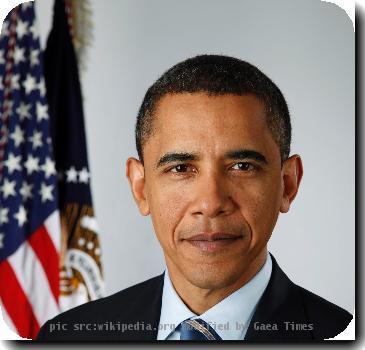UN chief Ban says all nations must stop finger-pointing, deepen their pledges to cut emissions
By John Heilprin, APTuesday, December 15, 2009
UN chief: Time to stop climate finger-pointing
COPENHAGEN — Rich and poor countries must “stop pointing fingers” and increase their pledges to cut greenhouse gas emissions to salvage the faltering talks on a global warming pact, U.N. Secretary-General Ban Ki-moon said Tuesday.
Ban’s warning in an interview with The Associated Press came as world leaders started arriving in Copenhagen, kicking the two-week conference into high gear in its quest to deliver a deal to curb emissions of heat-trapping greenhouse gases that cause global warming.
Key issues remain, however, and the conference so far has been marked by sharp disagreements between China and the United States — the world’s two largest carbon gas polluters.
China and other developing countries are resisting U.S.-led attempts to make their emissions cuts binding and open to international scrutiny rather than voluntary. While China says the United States is backing off its commitment to help developing nations deal with climate change, the U.S. contends that China is not a poor nation that needs climate change aid.
Ban told the AP he remains cautiously optimistic about a successful outcome, but warned that negotiators on both sides must work out their differences and not leave it to world leaders to resolve the major problems.
“This is a time where they should exercise the leadership,” Ban said. “And this is a time to stop pointing fingers, and this is a time to start looking in the mirror and offering what they can do more, both the developed and the developing countries.”
He said both rich and poor countries “must do more” to keep carbon emissions below dangerous levels and rich countries should step up commitments to provide a steady flow of money for poor countries to combat climate-linked economic disruptions such as rising seas, drought and floods.
“This is a historically important and politically and morally important imperative for world leaders to achieve a deal in Copenhagen,” Ban said.
Speaking to The AP at a hotel in Copenhagen, Ban said if negotiators cannot resolve those problems before more than 110 world leaders arrive starting, “the outcome will be either a weak one, or there will be no agreement.”
“This will be a serious mistake on the part of the negotiators and the leaders if they go back empty-handed,” he said.
In Beijing, China accused developed countries Tuesday of backsliding on what it said were their obligations to fight climate change.
“We still maintain that developed countries have the obligation to provide financial support,” Foreign Ministry spokeswoman Jiang Yu said, adding that was “the key condition for the success of the Copenhagen conference.”
Zimbabwe President Robert Mugabe was among the first heads of state to touch down in the Danish capital, avoiding a travel ban imposed by Western nations because he was attending to a U.N. conference. Mugabe was to address the conference on Wednesday.
“The meeting may be taking place on Danish soil but we’re playing by U.N. rules and these rules mean that all the world leaders can meet. That is the spirit of the United Nations,” Danish Prime Minister Lars Loekke Rasmussen told reporters.
British Prime Minister Gordon Brown was also expected later Tuesday — coming to Copenhagen a day earlier than planned to help push the talks forward.
President Barack Obama and Chinese Prime Minister Wen Jiabao are among those expected later this week.
The U.N. conference’s working groups were finalizing two years of work Tuesday and drawing up their final recommendations on such issues as deforestation, technology transfers and the registration of plans by developing countries to control their emissions.
Talks on a global climate deal hit a snag Monday when developing countries temporarily boycotted the negotiations, fearing industrial countries were backpedaling in their promises to cut greenhouse gases. The negotiations later resumed but deep divisions remain between rich and poor countries over emissions targets and financing for developing countries to deal with global warming.
The world leaders are aiming for a political agreement in Copenhagen rather than a legally binding treaty. Still, the goal is to nail down individual nations’ targets on emissions cuts and climate aid for poor countries so a legally binding text can be crafted next year.
Former U.S. Vice President Al Gore told the conference on Monday that new data suggests a 75 percent chance the entire Arctic polar ice cap may disappear in the summertime as soon as five to seven years from now.
Scientists say global warming will create rising sea levels, increasing drought, more extreme weather and the extinction of some species.
EDITOR’S NOTE — Find behind-the-scenes information, blog posts and discussion about the Copenhagen climate conference at www.facebook.com/theclimatepool, a Facebook page run by AP and an array of international news agencies. Follow coverage and blogging of the event on Twitter at: www.twitter.com/AP_ClimatePool
Tags: Asia, Barack Obama, China, Climate, Copenhagen, Denmark, East Asia, Environmental Concerns, Environmental Laws And Regulations, Europe, Facebook, Government Regulations, Greater China, North America, Twitter, United States, Western Europe



